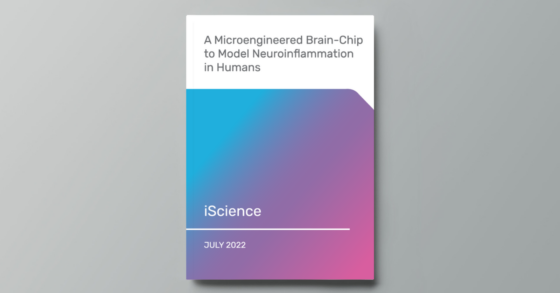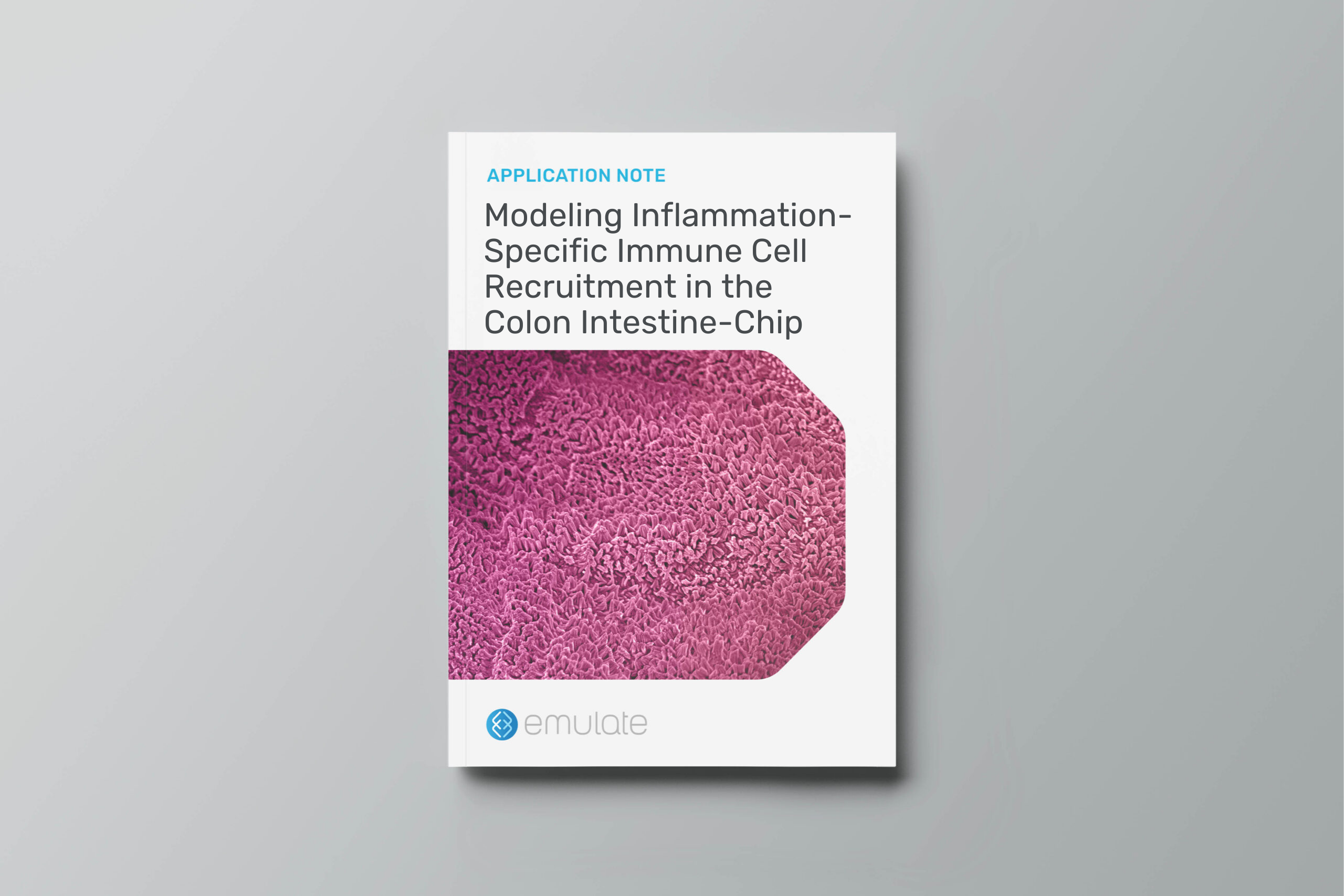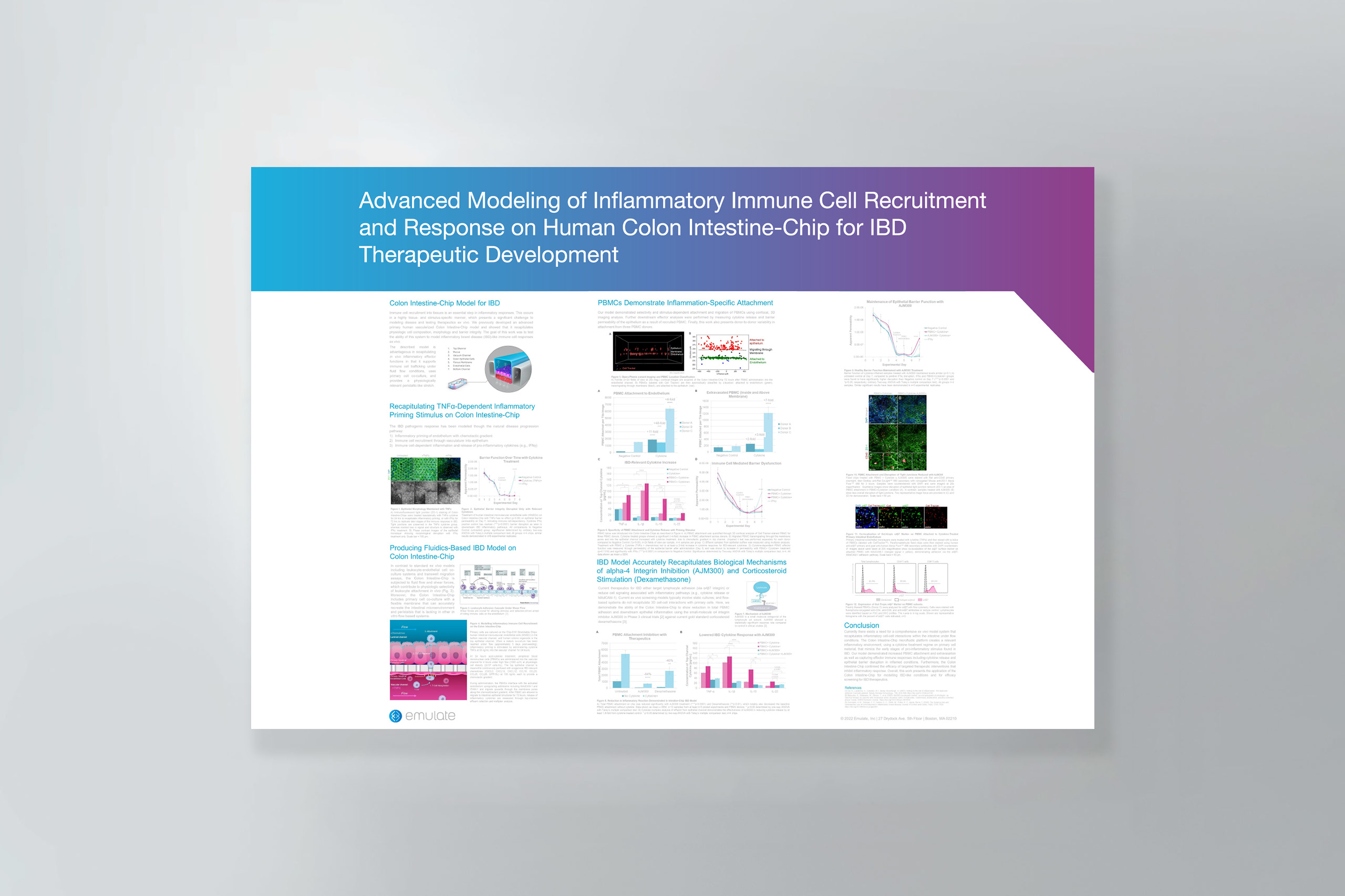Organ-Chip Application
Organ-Chips for Immunology Research & Drug Development
Investigating the mechanisms of human immune response
YOUR CHALLENGE
The inflammatory process remains poorly understood
Inflammation plays a role in many prominent diseases, including seven of the top ten leading causes of mortality in the developed world. However, the mechanisms of human inflammation remain poorly understood due to the challenge of modeling complex immune response in vitro and the fundamental differences in the immune systems of animals and humans. More human-relevant models of inflammation and immune response are needed to better understand and develop treatments for inflammatory diseases such as Alzheimer’s and inflammatory bowel disease (IBD).
How we can Help
Explore human immune response with Organ-on-a-Chip technology
Organ-on-a-Chip technology can be used to build more human-relevant models of inflammation, allowing researchers to incorporate the cellular diversity seen in vivo into a tissue-specific microenvironment that more closely emulates the complex cell-cell interactions involved in inflammation. The modularity of Organ-Chip models allows researchers to precisely control and study the individual contributions of various factors in the inflammatory process, including resident and circulating immune cells, inflammatory cytokines, cell-cell interactions, and organ-relevant mechanical forces.
Colon immune cell recruitment
Gain an unparalleled window into IBD with the only colon- and inflammation-specific model of human immune recruitment
Inflammatory bowel disease (IBD) is driven by the dysregulation of immune cell recruitment, which results in a runaway inflammatory cascade and damaging downstream effects. This complex immune response is difficult to model in conventional in vitro models because of their limited complexity, and animal models have been shown to be poor predictors of human immune response due to species differences. The Colon Intestine-Chip addresses these challenges by offering an unparalleled window into the complex mechanisms of human immune response in IBD.
CYTOKINE-MEDIATED COLONIC BARRIER DISRUPTION
Advance your studies of colon inflammation by leveraging Organ-on-a-Chip and organoid technology
The development of effective treatments for IBD and other inflammatory diseases of the intestine has been limited by the shortcomings of conventional models—cell lines of cancerous origin with limited cellular complexity or animal models with species differences in immune response. The Colon Intestine-Chip can be used to model key mechanisms of colon barrier disruption in a concentration-, time-, and donor-dependent manner and conduct efficacy studies of anti-inflammatory drug candidates to prevent or treat cytokine-mediated inflammation and barrier disruption.
NEUROINFLAMMATION
The most comprehensive in vitro model of the human neurovascular unit to study mechanisms of neuroinflammation and evaluate drug effect
Though animal models have yielded many insights into human neurophysiology, species differences have limited successful translation of neurodegenerative therapies to the clinic. Even advanced in vitro models such as brain organoids typically lack resident immune cells, media flow, and vasculature, which are critical for studying how diseases impact the blood-brain barrier. The Brain-Chip is under development to address these challenges. By incorporating microglia—essential for modeling neuroinflammation—and including both the neuronal compartment and brain microvascular endothelial-like cells, researchers will be able to study the effect of neuroinflammation and drug candidates across the entire neurovascular unit.
How Organ-Chips are being used
In a study published in iScience, the Brain-Chip was used to model key features of neuroinflammation and its effect across the neurovascular unit. Exposure to TNF-α resulted in glial activation, proinflammatory cytokine secretion, neuronal loss, disruption of barrier integrity, and significant enrichment of inflammatory gene pathways. A drug efficacy study was conducted with minocycline, an anti-inflammatory capable of crossing the BBB. Vascular administration of minocycline reduced the inflammatory response and proinflammatory cytokine secretion while helping to maintain barrier integrity.
Taken together, this shows how Organ-Chips can provide more human-relevant models to study mechanisms of immune response, cytokine-mediated inflammation, and drug efficacy.

Our Offering
Unravel mechanisms of human immune response across multiple organ models
Whether you are looking to study inflammation of the intestine, brain, or other organs, you can improve the human relevance of your research with Emulate Organ-Chips.
Benefits
Leverage a human-relevant, healthy organ model
Recreate diverse features of inflammation & immune response
Investigate roles of individual inflammatory factors
Assess the efficacy of anti-inflammatory drug candidates
Supported Organ Models
Colon Intestine-Chip
Investigate mechanisms of colon immune cell recruitment, inflammation, and cytokine-mediated barrier disruption and evaluate the efficacy of anti-inflammatory drug candidates in an organoid-based model.
Brain-Chip
Study human physiology, disease, and drug effect in a comprehensive model of the neurovascular unit.






